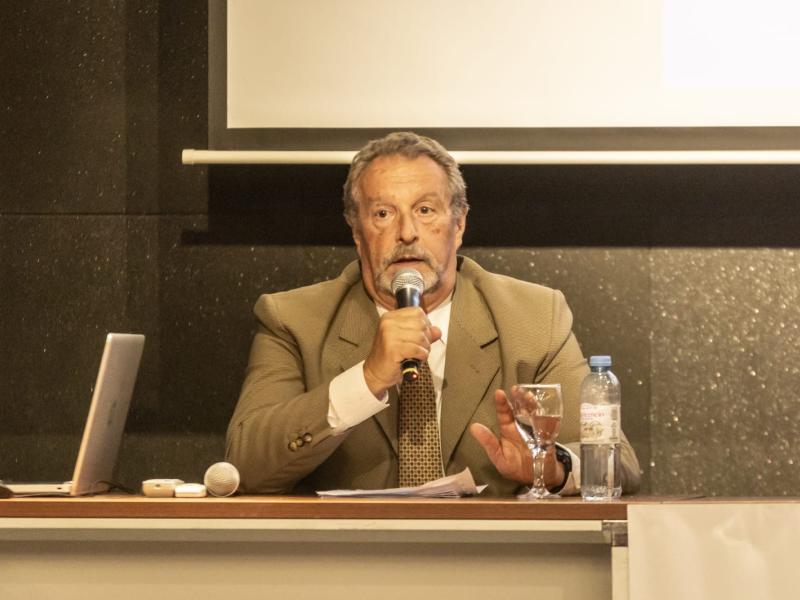ITF and ETF demand action from governments and industry to ensure “crucial step forward” for fishers
The International Transport Workers’ Federation (ITF) and the European Transport Workers’ Federation (ETF) welcome the adoption of the new ‘Guidelines for Fair Labour Market Services for Migrant Fishers’ by the International Labour Organization (ILO) in Geneva last week, calling the move a “crucial step forward” for the protection of migrant fishers worldwide,
The new Guidelines, jointly developed by representatives of governments, fishing vessel owners and fishers’ organisations, set minimum global standards for how migrant fishers should be recruited, employed and protected at sea. They draw extensively on previous work carried out by the European Fisheries Social Partners.
“For too long, migrant fishers have been invisible in the global seafood industry – facing abuse and exploitation in their vital job of putting seafood on our plates. These are key workers that have been left without crucial rights,” said Johnny Hansen, Chair of the ITF Fisheries Section.
“This can be a crucial step forward for the protection of migrant fishers – but only if governments and employers act now, as they must.”
The Guidelines make clear that:
- Migrant fisher recruitment must be free, fair and transparent
- Contracts must be written and made available in languages migrant fishers understand
- Migrant fishers must have decent working and living conditions
- Migrant fishers must have access to justice
Once approved, the ITF and ETF are urging flag, port and labour-providing states to immediately begin implementing the Guidelines through national law and practice. This must include licensing and monitoring recruitment agencies, strengthening inspection systems, collecting data and ensuring access to grievance and redress mechanisms for fishers.
The ITF and ETF congratulate the UK for supporting the adoption of the Guidelines and noted the UK Government’s plan to establish a Fair Work Agency for the fisheries sector in April 2026.
“The UK’s planned Fair Work Agency can definitely be a game-changer on these issues, but only if it enforces the standards set out in the new Guidelines and has a remit in the fishing sector,” said Chris Williams, ITF Fisheries Section Coordinator. “That means fair recruitment, fair contracts, and genuine accountability for a sector reliant on migrant workers.”
The ITF and ETF are also calling on retailers, brands and seafood buyers to embed the Guidelines in their responsible sourcing frameworks.
“If your business profits from fish caught by migrant workers, you have an obligation to ensure those workers are recruited and treated fairly,” said Juan Manuel Trujillo, ETF Fisheries Section Chair. “The ITF and ETF will call out any company claiming to sell sustainable seafood if its supply chain relies on exploitation.”
The ITF and ETF stress that implementation must not remain voluntary or symbolic. Governments, vessel owners, and multinational buyers must all be held accountable for ensuring that migrant fishers are treated with dignity and fairness.
“These Guidelines are more than words on paper: they are a promise to the people who feed the world. It’s time for governments and employers to step up to make that promise real,” said Williams.
ENDS
If you are a fisher in need of support, contact the ITF via our Facebook Fishers Support page or email: fishsupport@itf.org.uk
Notes to Editor
- Find the ILO Guidelines here.
- The United Nations Food and Agriculture Organization (UN FAO) estimates that there are 33.6 million people working in fisheries worldwide.
- While precise numbers are unknown, it is widely believed that there are significant numbers of migrant fishers working across global fleets, with those numbers varying across specific fisheries, e.g., small-scale domestic fisheries in coastal waters, where numbers are thought to be lower, as opposed to distant water fleets, where numbers are believed to be far higher.
In 2021, the ILO estimated that that there are at least 128,000 victims of forced labour in the commercial fishing industry worldwide. Many of these are likely to be migrant fishers.
About the ITF: The International Transport Workers’ Federation (ITF) is a democratic, affiliate-led federation recognised as the world’s leading transport authority. We fight passionately to improve workers’ lives, connecting more than 730 affiliated trade unions from over 150 countries to secure rights, equality and justice for workers globally. We are the voice for more than 16.5 million transport workers across the world.
Media contact: Mark Dearn +44 7738 832 413 media@itf.org.uk



